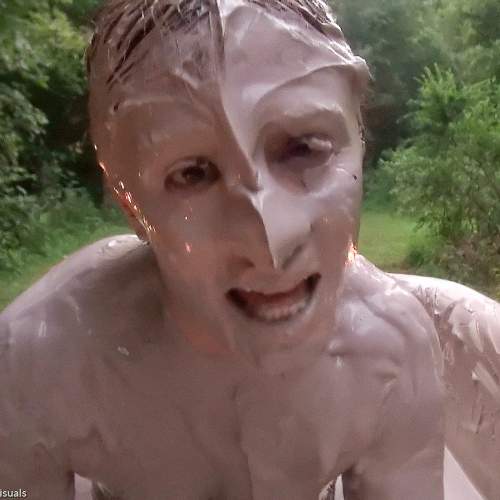|
|
|||
| forums: groups: | |||
|
"What is considered piracy"
8 posts 605 views
What is considered piracy and what is not. Does it matter what the source of the reproduction of copyrighted material is or who the copyright owner is?
According to youtube "Creators should only upload videos that they have made or that they're authorized to use. That means they should not upload videos they didn't make, or use content in their videos that someone else owns the copyright to, such as music tracks, snippets of copyrighted programs, or videos made by other users, without necessary authorizations."
According to UMD, "Do not link to or otherwise direct users to any site that is known to traffic in pirated content (e.g. a "tube" site). Asking where to find content is generally okay, as someone may know where it can be legally viewed or purchased, but don't invite others to trade, give, buy, or sell such content, regardless of its age, rarity, or if the producer is deceased. Reselling original analog content such as your VHS collection is allowed, but do no offer to sell your digital content collection unless you own the copyright to the content on it."
The various governments have very long worded laws around that stuff. For the most part, if you do not own the rights to the material it should not be posted online or shared online.
Then there is the fair use clause. That allows for commentary, opinions etc about the content where only a portion of the total work is used. According to copyright.gov, if a large portion of the total is used then it is less likely to be covered under fair use.
I pose the question to the community. How much of a given work should be allowed before it is considered a copyright infringement and possible piracy? Is it a percentage, a total length of time?
Does it matter who the copyright owner is as far as whether it should be considered piracy? Does Youtube, DailyMotion etc violate copyright laws with the uploading of videos by someone who does not own the copyright to that work?
According to youtube "Creators should only upload videos that they have made or that they're authorized to use. That means they should not upload videos they didn't make, or use content in their videos that someone else owns the copyright to, such as music tracks, snippets of copyrighted programs, or videos made by other users, without necessary authorizations."
According to UMD, "Do not link to or otherwise direct users to any site that is known to traffic in pirated content (e.g. a "tube" site). Asking where to find content is generally okay, as someone may know where it can be legally viewed or purchased, but don't invite others to trade, give, buy, or sell such content, regardless of its age, rarity, or if the producer is deceased. Reselling original analog content such as your VHS collection is allowed, but do no offer to sell your digital content collection unless you own the copyright to the content on it."
The various governments have very long worded laws around that stuff. For the most part, if you do not own the rights to the material it should not be posted online or shared online.
Then there is the fair use clause. That allows for commentary, opinions etc about the content where only a portion of the total work is used. According to copyright.gov, if a large portion of the total is used then it is less likely to be covered under fair use.
I pose the question to the community. How much of a given work should be allowed before it is considered a copyright infringement and possible piracy? Is it a percentage, a total length of time?
Does it matter who the copyright owner is as far as whether it should be considered piracy? Does Youtube, DailyMotion etc violate copyright laws with the uploading of videos by someone who does not own the copyright to that work?
dalamar666 said: How much of a given work should be allowed before it is considered a copyright infringement and possible piracy? Is it a percentage, a total length of time?
I remember watching a UK TV program once analysing something and them saying words to the effect of "we can only show you 30 seconds of this for copyright reasons". If it's the show I think it is, it will have been a 30min episode and it will have been on Channel 4 which is government owned, so would probably have been working to both the spirit of and the letter of the law.
dalamar666 said: Does Youtube, DailyMotion etc violate copyright laws with the uploading of videos by someone who does not own the copyright to that work?
When people sign up to these websites, they accept terms of service which will no doubt state that content cannot be uploaded that violates international copyright law. So linking to those sites should be completely fine.
In practice, terms of service aren't policed very well on sites hosted by mega-corp, so a good number will slip through the net. Those sites will be relying on the community, or more likely the copyright holder, to be reporting violations. So individual users violate terms and condition, the sites themselves do not violate anything.
The fact that "I have read and agree to these terms and conditions" is the biggest lie on the internet is not the fault of those sites, they will argue.
I don't pretend to be a legal professional, but that is my understanding.
Film it and they will come.
dalamar666 said:
I pose the question to the community. How much of a given work should be allowed before it is considered a copyright infringement and possible piracy? Is it a percentage, a total length of time?
I pose the question to the community. How much of a given work should be allowed before it is considered a copyright infringement and possible piracy? Is it a percentage, a total length of time?
I believe that while there are laws governing "fair use", the implementation of what that really means is a matter of opinion.
Does it matter who the copyright owner is as far as whether it should be considered piracy?
Legally, no.
In practice, though, it matters a great deal who the owner is. Are they a person who cares that their work is re-shared -- or not?
It is ridiculously obvious that there is a lot of content on YouTube that technically violates the rules. Every last user who posts a scene from a favorite mainstream TV show is guilty.
But if the copyright owner doesn't do anything about it, the content will just stay there.
Does Youtube, DailyMotion etc violate copyright laws with the uploading of videos by someone who does not own the copyright to that work?
Without even going online to ask Google this question...it is probably extremely safe to say that YouTube and DailyMotion are in no way, shape or form going to willingly accept blame for this.
And they do deserve some of the blame. I wouldn't expect them to know who owns a WAM video, but when it comes to insanely popular sitcoms and blockbuster movies, they don't exactly take the initiative to rub out illegally uploaded material.
This gives the impression to others that this is okay. And when the takedown happens, the uploader is surprised and shocked. Therefore, it's my opinion that you could make a case that YouTube and DailyMotion are negligent.
Nessie
Nessie, I agree I don't think that they know who owns the copyright to things like WAM content. I do think they absolutely know that the content is copyrighted and that they are negligent with it.
I think that the sites themselves do bare some accountability for the content hosted on their site. Just because they respond to some DMCA takedowns while allowing 3 more of the hydra to pop up. I also don't think they want to know if people are sharing copyrighted material on the site. They still make that ad revenue from the copyrighted material which would definitely be argued in court to violate copyright law.
I would also agree that it does matter who the copyright owner is. I think that Youtube responds faster and decides to take down the video based on who the copyright owner is. An Independent film company VS someone like Warner Brothers, I think we know who will have the content removed.
I think that the sites themselves do bare some accountability for the content hosted on their site. Just because they respond to some DMCA takedowns while allowing 3 more of the hydra to pop up. I also don't think they want to know if people are sharing copyrighted material on the site. They still make that ad revenue from the copyrighted material which would definitely be argued in court to violate copyright law.
I would also agree that it does matter who the copyright owner is. I think that Youtube responds faster and decides to take down the video based on who the copyright owner is. An Independent film company VS someone like Warner Brothers, I think we know who will have the content removed.
dalamar666 said: Then there is the fair use clause. That allows for commentary, opinions etc about the content where only a portion of the total work is used.
Lindsay Ellis did a video about this:
https://nebula.tv/videos/product-placement-and-fair-use
In brief, the key point was the commentary and opinions. That's why when you get those "funniest TV moments of the 1990s" shows, they have presenters talking about each clip rather than just showing the clips as a top 40 countdown.
In the context of YouTube, that means that you could justify showing a clip from a movie if you want to say something about it (e.g. if you're speculating about a murder mystery based on the clues which have been revealed so far). However, if you want to have "Harley Quinn being chaotic for 4 and a half minutes" then you just have to rely on the copyright owner turning a blind eye to it.
dalamar666 said: What is considered piracy and what is not.
In a nutshell, it is considered piracy when an image is used by someone other than the person who created it. The term 'used' can mean; reproduce, distribute, trade print, duplicate, copy, sell, re-edit, modify, exploit, etc. When a producer creates an image, he is the only person who can, by law benefit from that. By definition a pirate takes what's not theirs to take and benefits from it. To add to any confusion, when a person purchases images, they are not buying the copyright to those images. They have the right to see these images and collect them, but they cannot share them or otherwise make a profit from them.
Does it matter what the source of the reproduction of copyrighted material is or who the copyright owner is?
It matters who the copyright owner is. Technically every image you see is copyrighted to their respective owners. And in most instances the copyright owner is usually the person who recorded the images. However there are some exceptions to this;
Such an exception would be when a photographer is hired for a job. A wedding photographer, as an example. Having been hired to produce images, the images belong to the new happy couple and their families. The wedding photographer has no rights to any images unless otherwise agreed upon. Anyone who was hired to produce a commercial. The images in a commercial would not belong to the producer, but to the agency who hired them.
Any source of reproduction other than the person who created the images would be infringing on copyright law. It doesn't matter if, for example, a producer has passed away. Their images are still protected under copyright law.
According to youtube "Creators should only upload videos that they have made or that they're authorized to use. That means they should not upload videos they didn't make, or use content in their videos that someone else owns the copyright to, such as music tracks, snippets of copyrighted programs, or videos made by other users, without necessary authorizations."
If you read the fine print, Youtube has a number of copyright policies which they also enforce. Since they take the position of being a platform, they make it clear that they aren't responsible for copyright infringement and provide a means to contact them concerning infringement issues. But it is convenient for them that they leave that to users of the platform. They don't automatically police the site looking for potential copyright infringement.
Then there is the fair use clause. That allows for commentary, opinions etc about the content where only a portion of the total work is used. According to copyright.gov, if a large portion of the total is used then it is less likely to be covered under fair use.
"Fair use" was intended to allow portions of copyrighted material to be used for purposes of public discussion without the need of consent. An example of fair use would be when the press uses an image for the purpose of reporting news. However, "fair use" has also been a convenient excuse to circumvent copyright law.
I pose the question to the community. How much of a given work should be allowed before it is considered a copyright infringement and possible piracy? Is it a percentage, a total length of time?
Any portion would be considered infringement. Even if it is one second long. The problem ultimately is, can it be proven? A slick lawyer can argue that one second of video cannot be identified therefore there could be no infringement. However, what could be argued is the data on the image. In this digital age an image isn't just what you can see, but what's in the metadata.
Does it matter who the copyright owner is as far as whether it should be considered piracy?....
As mentioned before, yes! If I did not authorize the use of an image, that I took, it is considered piracy, or at the least, copyright infringement.
....Does Youtube, DailyMotion etc violate copyright laws with the uploading of videos by someone who does not own the copyright to that work?
Technically, they do not violate copyright laws because they only control the platform, not whom uses the platform. Thats their little escape from culpability. This is why they add in the fine print and have policies. If Youtube and others were held accountable, they would go out of business rather quickly and they couldn't make the money they do.
The unfortunate fact we face in the digital world is, it's all to easy to get away with copyright infringement. By the time we find our videos online, it's been viewed thousands of times for free. At present there isn't technology to eliminate piracy, so we are forced to live with it. At present, we've decided not to produce or sell any more videos (for the time being) until there is means to help defeat or at least make piracy much more difficult.
EdwinR
Everything's better when wet…
dalamar666 said:
I would also agree that it does matter who the copyright owner is. I think that Youtube responds faster and decides to take down the video based on who the copyright owner is. An Independent film company VS someone like Warner Brothers, I think we know who will have the content removed.
I would also agree that it does matter who the copyright owner is. I think that Youtube responds faster and decides to take down the video based on who the copyright owner is. An Independent film company VS someone like Warner Brothers, I think we know who will have the content removed.
If you're claiming that Warner Brothers receives better takedown service from YouTube than a small independent producer...
I wouldn't bet on it. I am a mighty small producer. But YouTube takes them down every single time I ask.
Lately, they're even fast. I requested a takedown this morning. About two hours passed between takedown request to taken-down.
They've never refused to do this. I've been officially retired from making videos since 2013, that's about a decade...and every last thing I ever asked them to take down, they did.
Nessie
dalamar666 said: What is considered piracy and what is not. Does it matter what the source of the reproduction of copyrighted material is or who the copyright owner is?
According to youtube "Creators should only upload videos that they have made or that they're authorized to use. That means they should not upload videos they didn't make, or use content in their videos that someone else owns the copyright to, such as music tracks, snippets of copyrighted programs, or videos made by other users, without necessary authorizations."
According to UMD, "Do not link to or otherwise direct users to any site that is known to traffic in pirated content (e.g. a "tube" site). Asking where to find content is generally okay, as someone may know where it can be legally viewed or purchased, but don't invite others to trade, give, buy, or sell such content, regardless of its age, rarity, or if the producer is deceased. Reselling original analog content such as your VHS collection is allowed, but do no offer to sell your digital content collection unless you own the copyright to the content on it."
The various governments have very long worded laws around that stuff. For the most part, if you do not own the rights to the material it should not be posted online or shared online.
Then there is the fair use clause. That allows for commentary, opinions etc about the content where only a portion of the total work is used. According to copyright.gov, if a large portion of the total is used then it is less likely to be covered under fair use.
I pose the question to the community. How much of a given work should be allowed before it is considered a copyright infringement and possible piracy? Is it a percentage, a total length of time?
Does it matter who the copyright owner is as far as whether it should be considered piracy? Does Youtube, DailyMotion etc violate copyright laws with the uploading of videos by someone who does not own the copyright to that work?
According to youtube "Creators should only upload videos that they have made or that they're authorized to use. That means they should not upload videos they didn't make, or use content in their videos that someone else owns the copyright to, such as music tracks, snippets of copyrighted programs, or videos made by other users, without necessary authorizations."
According to UMD, "Do not link to or otherwise direct users to any site that is known to traffic in pirated content (e.g. a "tube" site). Asking where to find content is generally okay, as someone may know where it can be legally viewed or purchased, but don't invite others to trade, give, buy, or sell such content, regardless of its age, rarity, or if the producer is deceased. Reselling original analog content such as your VHS collection is allowed, but do no offer to sell your digital content collection unless you own the copyright to the content on it."
The various governments have very long worded laws around that stuff. For the most part, if you do not own the rights to the material it should not be posted online or shared online.
Then there is the fair use clause. That allows for commentary, opinions etc about the content where only a portion of the total work is used. According to copyright.gov, if a large portion of the total is used then it is less likely to be covered under fair use.
I pose the question to the community. How much of a given work should be allowed before it is considered a copyright infringement and possible piracy? Is it a percentage, a total length of time?
Does it matter who the copyright owner is as far as whether it should be considered piracy? Does Youtube, DailyMotion etc violate copyright laws with the uploading of videos by someone who does not own the copyright to that work?
https://m.youtube.com/watch?v=Sglm8gQ4TMY
https://m.youtube.com/watch?v=BO1rHvQpC2Y
https://m.youtube.com/watch?v=cu76_JEEd5U
These answer some of these questions
Paint with play and surrender
Sponsors
To avoid content being blocked due to your local laws, please verify your age ?
Sponsors

Design & Code ©1998-2026 Loverbuns, LLC 18 U.S.C. 2257 Record-Keeping Requirements Compliance Statement
Epoch Billing Support Log In





 Love you, too
Love you, too
































